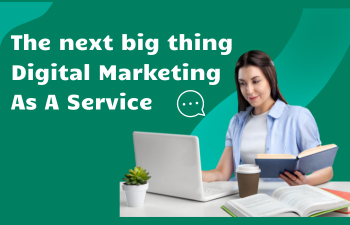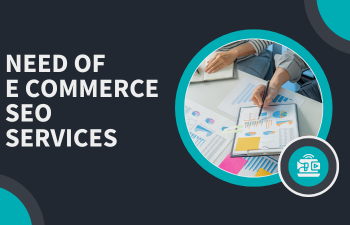How To Do Competitor Analysis and Improve Your Digital Marketing
it’s hard to imagine doing business in this day and age without competitor analysis. The companies you call your “competition” are all aiming to take your customers and expand, and they’re not doing this by sitting idly. There’s always some level of analysis going on, even as you read about the successes and failures of other companies in your field.
However, you need to take a proactive approach and learn as much as you can about these businesses and how they can affect your market. More importantly, you have to learn from them to adapt your digital marketing strategy in the most effective way. Here’s how you can do this.
Why is ongoing competitor analysis important?
Business is an inherently competitive field. Even if you dabble in niche products or services, you can be sure that there’s another company vying for the attention of the same customers you are. If your competitors steal your target demographic, your business is in trouble.
However, how would the competition beat your company? What is it that they offer that your company doesn’t? These are pressing questions that you be constantly asking yourself. If you’re serious about getting an accurate answer, you need to start analyzing your competition. There’s always something to learn that can help you improve your company, whether it’s determining your weaknesses or the weaknesses of your competitors.
Learning more can be especially beneficial to your digital marketing strategy, as this is a dynamic and strongly competitive market.
Identify your competition
Before you can get down to analysis, you have to identify your competitors. The question on your mind should be: who are they? While you might know a couple of the most famous ones, that doesn’t mean that those are the only ones out there. Even smaller businesses can take bits and pieces from your consumer base, even if you haven’t heard of them.
To get a good idea of what you’re up against, you should create a list of companies that deal with similar products and services as your own. If they target similar markets, they are worth a mention. If you don’t have a lot of experience with competitor analysis, you can narrow down the list to the most popular five or ten businesses that you compete with.

Analyze their strategies online
You’d be hard-pressed to find a company without a website. Just about everyone has one right now, considering they’re one of the most important elements of a digital marketing strategy. While not as ubiquitous, most companies have their marketing strategies displayed on their websites. It wouldn’t hurt to learn how they work, what they offer in terms of products, and how their leadership structure functions.
If possible, find their press releases and annual reports and thoroughly analyze them. Figure out how the company works and what’s their angle when it comes to promotion or marketing. You can even visit their social media posts and see how they interact with customers. Everything they share and showcase to the audience is a part of their marketing strategy, and there’s plenty you can learn from that.
Use analytics tools to check out their most popular pages. How are they structured? What short and long-tail keywords do they use on their website? What type of content do they prefer? This is all valuable information that can help you get an edge over your competition.
Compare the competitors
The best way to get a perspective of your business is to compare it with its competitors. However, it doesn’t hurt to compare them to one another as well. This can help you understand more about how they function and attract customers without being biased during the comparison. Not to mention, it helps put how they fare against others in comparison. It’s a good way of assessing whether or not they are a threat to your business.
A side-by-side comparison would be the best way to compare your competitors. Include everything that you deem necessary for the function of the business. Whether it’s the products and services that they offer or their locations and target audience, you should put it on the list and compare the results. Anything that makes the businesses stand out will be particularly informative and could prove to be a useful tool for your future ventures.
Have a look at their blogs
Every digital marketing strategy emphasizes the importance of blogging. It’s a critical pillar of the business, which means your competitors all have blogs that feature different types of content that are relevant to your line of work. You should follow their blogs to see what they publish and how it attracts visitors.
Start by determining the kind of content your competitors publish online. Is it focused on the latest industry topics and features up-to-date information that’s useful to consumers? This isn’t always the case. Many blogs aren’t produced with quality in mind. They exist to be stuffed with keywords and mediocre content. In these scenarios, the business isn’t utilizing its blog properly, and you should take note of this.
Look for shortcomings in the blog strategies of your competitors. What kind of content niche haven’t they utilized and can it help you? You can improve your online reputation by adapting to a high-demand content market.
Recognize your unique position
There will always be similarities between your business and its competitors, especially if you compete in the same niche field. Noticing these similarities is the easy part. What’s difficult is figuring out the things that set you apart and make your company unique.
The reason why this is so important is the fact that these differences draw customers to your business. How did you carve out a percentage of your target demographic to turn into your audience, and how did your competitors do it for the rest? It’s important to capitalize on the answer, as it could lead to massive improvements in leads. It could have been your style of marketing that attracted consumers, or the quality of products that you offer.
Whatever the answer, you must recognize the unique position you’re in to be able to maximize the number of customers you can attract.
Learn more about competitor SEO
Content is only part of the equation for optimizing a website. Both you and your competitors are locked into a perpetual war for search engine result page spots. You want your company to be the first result that pops up when relevant industry keywords are typed into a search bar. Reaching that first SERP is easier said than done, as SEO requires tremendous effort and expertise to master. Learning more about your competitors’ efforts for optimization will help you recognize your shortcomings and make it easier to improve your website accordingly.
One of the first things you’ll notice when visiting a competitor’s website is the page loading speed. This is a metric that has enormous sway on both customers and search engine crawlers. Optimizing your website for better speed helps increase rankings dramatically. However, it also requires that you create a good balance between proper design practices and page load speed. The question is—how do you create an attractive and state-of-the-art website without it taking too long to load? Well, how do your competitors do it, and do they require external expert assistance?
In most scenarios, the answer to the latter is yes. Through your analysis and data collection, you’ll most likely realize that plenty of online businesses enlist the help of SEO specialists to optimize their websites. It’s a sound investment for any digital marketing strategy. If you can hire experts to take care of the extremely challenging task of optimizing various aspects of your website, you can dedicate more time to other elements of digital marketing. This helps save time, effort, and money in the long run, while also providing you with a strong digital presence that can give your competitors a run for their money.
Check backlinks
Backlinks are an essential tool in every digital marketing expert’s toolkit. They’re valuable because they can improve a site’s domain authority. However, this only applies if the links are healthy and functional. Search engines take into account the quality of backlinks when determining site rankings. If the backlinks aren’t good, they’ll be marked as spam and Google may even penalize the website that features them. This is why websites that want to improve their SEO rankings want to optimize their backlinks as much as possible.
Researching your competitors’ backlinks can be a handy way to improve your backlink portfolio. You should make a list of the strongest links they have and explore their content. Website analysis tools can help you with this task. Once you see where the best backlinks lead, you should check the domains and their rules for guest content. You can use the research your competitors have done to your advantage. Build a healthy backlink portfolio by contacting these strong domains and offering them content for links.
Conclusion
There are many reasons why you would want to analyze your competition. Experienced entrepreneurs say that you should learn from your mistakes, but even more experienced ones suggest that you should look at your competitors’ mistakes as well. This can be a great opportunity to expand your knowledge and create more thorough strategies that can propel your business to the top. Whether it’s the top of search engines results pages or lists of successful companies you’re aiming for, you want to do regular analysis of your competition. It’s going to help you grow as a business owner and how you the path towards success.
 Digital Marketing
Digital Marketing











